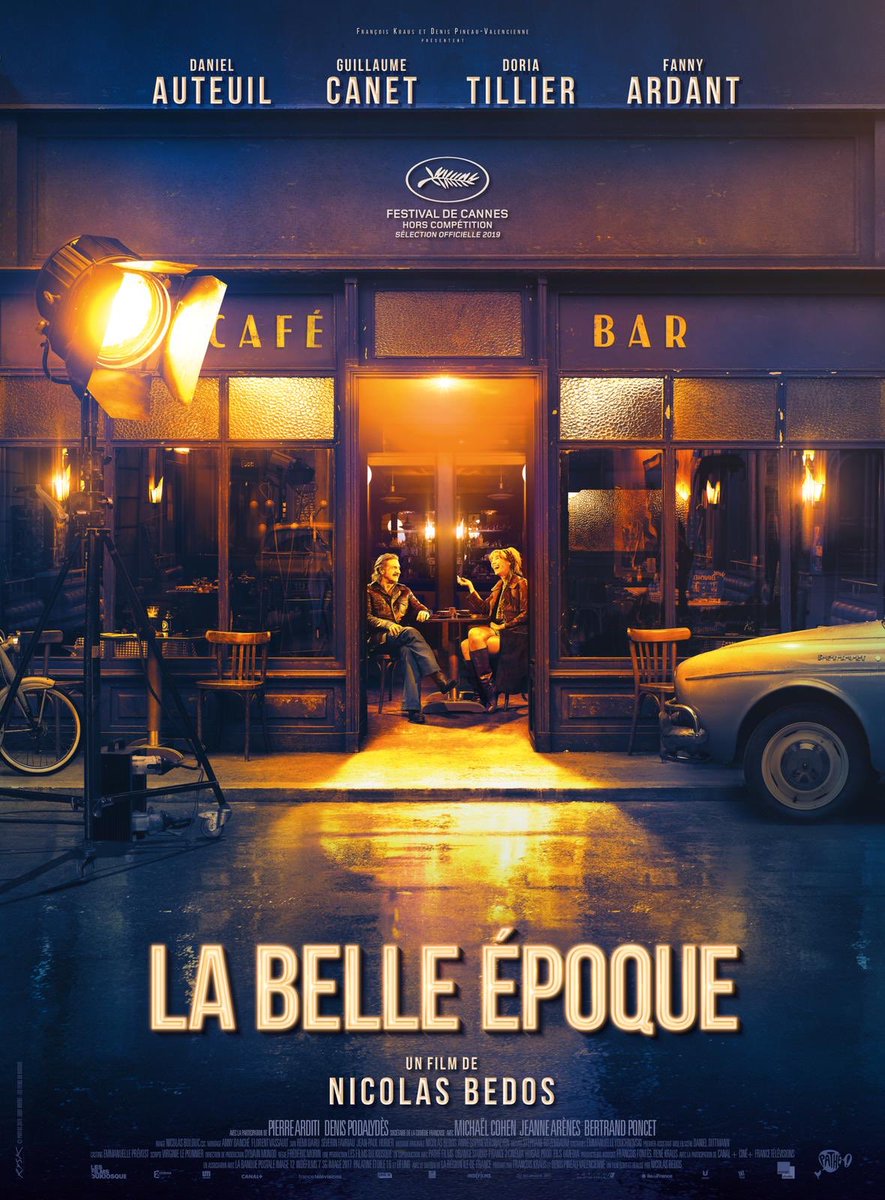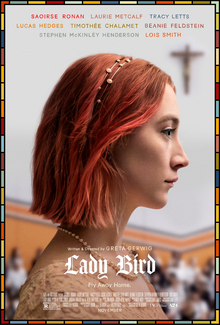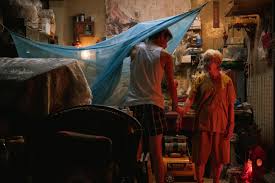

‘Nostalgia sells better and better now.’, chimes in a chap at the beginning of La Belle Époque. Indeed, the lure of nostalgia is certainly something that can reliably be capitalised on, and that is exactly what La Belle Époque does as a film, and within the film.
At the beginning of the film, Victor Drumond (Daniel Auteuil) is asked which time period he would go back to if he had the chance, he responds, ‘when I slept with my wife’. The pervading theme of nostalgia is introduced along with this marital conflict right at the beginning. We see the marriage between Victor and his wife, Marianne (Fanny Ardant) fall apart in a brutal tiff between the two, with Victor being kicked out of the house. Shortly after, he resorts to using a gift from his son: a gift voucher from the company, ‘Les Voyageurs du Temps’ (‘The Time Travelers’), which recreates any historical period of a person’s choice. Victor chooses an evening in 1974. The evening he met Marianne. With his intricate sketches and vivid recollections of the words they uttered that evening, the company, led by the very pedantic Antoine (Guillaume Canet), execute a flamboyant recreation of that scrappy café in Lyon where the couple first met. With every small action orchestrated, actors spouting rehearsed lines, and elaborately designed sets, the company lets Victor step back into the past he wistfully describes.
In the recreated 1974, Victor’s whole demeanour changes as he no longer appears his listless, detached and passive self. After spending one gifted evening in the old days, Victor longs for more time in this recreated 1974, with a fake young-Marianne, played by an actress, Margot (Doria Tillier). He scrapes every surface to find the money for more recreated evenings, ultimately leading him to sell one of his and Marianne’s apartments. The slippery slope of nostalgia is thus exposed, as Victor continues staying on his recreated past. When he once asks Margot, ‘When will I see you again?’, she responds, ‘in 1974’, thereby highlighting how the lines between the present, the created past and the past are rather blurred now. Although Victor recognises he is on a set and acknowledges that it is all fake, his relentless urges to go back to those evenings with young Marianne lead him to stick around in a literally idealised and constructed past, rather than facing his present situation.
With bandanas, sideburns and flares, vintage taxis and telephones, pot parties, dingy rooms and a Janis Joplin hit, La Belle Époque is quite reminiscent of the 70s. It certainly is a visual treat, accompanied by an important lesson on the dangers of nostalgia and a longing to go back to a life in a past period. However, the film also involves certain other strands, such as the volatile relationship between Antoine, the company owner, and Margot, the actress, which remains a half-baked plot line. With the focus primarily on developing the main storyline, certain other relationships in the film feel neglected and underdeveloped, thus leaving these chunks half-baked.
All in all, La Belle Époque (2019), a French film by Nicolas Bedos, is an interesting watch, encouraging us to reflect upon our own lives and nostalgic desires. As with Victor, nostalgia is a smooth and easy escape from our present until the time comes when we must deal with it.
La Belle Époque is out on most online movie platforms!

‘Nostalgia sells better and better now.’, chimes in a chap at the beginning of La Belle Époque. Indeed, the lure of nostalgia is certainly something that can reliably be capitalised on, and that is exactly what La Belle Époque does as a film, and within the film.
At the beginning of the film, Victor Drumond (Daniel Auteuil) is asked which time period he would go back to if he had the chance, he responds, ‘when I slept with my wife’. The pervading theme of nostalgia is introduced along with this marital conflict right at the beginning. We see the marriage between Victor and his wife, Marianne (Fanny Ardant) fall apart in a brutal tiff between the two, with Victor being kicked out of the house. Shortly after, he resorts to using a gift from his son: a gift voucher from the company, ‘Les Voyageurs du Temps’ (‘The Time Travelers’), which recreates any historical period of a person’s choice. Victor chooses an evening in 1974. The evening he met Marianne. With his intricate sketches and vivid recollections of the words they uttered that evening, the company, led by the very pedantic Antoine (Guillaume Canet), execute a flamboyant recreation of that scrappy café in Lyon where the couple first met. With every small action orchestrated, actors spouting rehearsed lines, and elaborately designed sets, the company lets Victor step back into the past he wistfully describes.
In the recreated 1974, Victor’s whole demeanour changes as he no longer appears his listless, detached and passive self. After spending one gifted evening in the old days, Victor longs for more time in this recreated 1974, with a fake young-Marianne, played by an actress, Margot (Doria Tillier). He scrapes every surface to find the money for more recreated evenings, ultimately leading him to sell one of his and Marianne’s apartments. The slippery slope of nostalgia is thus exposed, as Victor continues staying on his recreated past. When he once asks Margot, ‘When will I see you again?’, she responds, ‘in 1974’, thereby highlighting how the lines between the present, the created past and the past are rather blurred now. Although Victor recognises he is on a set and acknowledges that it is all fake, his relentless urges to go back to those evenings with young Marianne lead him to stick around in a literally idealised and constructed past, rather than facing his present situation.
With bandanas, sideburns and flares, vintage taxis and telephones, pot parties, dingy rooms and a Janis Joplin hit, La Belle Époque is quite reminiscent of the 70s. It certainly is a visual treat, accompanied by an important lesson on the dangers of nostalgia and a longing to go back to a life in a past period. However, the film also involves certain other strands, such as the volatile relationship between Antoine, the company owner, and Margot, the actress, which remains a half-baked plot line. With the focus primarily on developing the main storyline, certain other relationships in the film feel neglected and underdeveloped, thus leaving these chunks half-baked.
All in all, La Belle Époque (2019), a French film by Nicolas Bedos, is an interesting watch, encouraging us to reflect upon our own lives and nostalgic desires. As with Victor, nostalgia is a smooth and easy escape from our present until the time comes when we must deal with it.
La Belle Époque is out on most online movie platforms!



